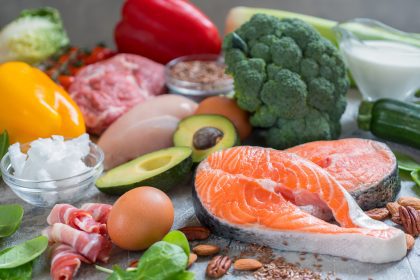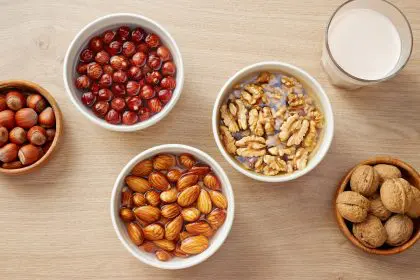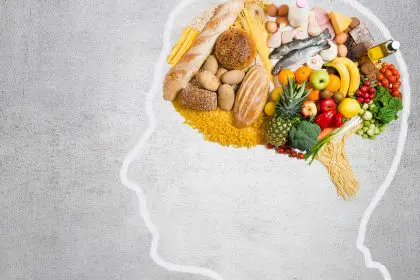The secret to sharper concentration might already be in your kitchen, as these six foods work behind the scenes to enhance cognitive function and mental clarity.
In our increasingly distracted world, maintaining focus has become a precious skill. While meditation apps and productivity techniques garner attention, certain foods quietly support brain function without fanfare. These nutritional powerhouses work on a cellular level, providing the nutrients your brain needs for optimal performance.
The foods that most effectively enhance concentration don’t necessarily make headlines or come with bold claims on their packaging. Instead, they work subtly, delivering compounds that nourish neural pathways, regulate neurotransmitters, and protect brain cells from oxidative stress.
Here are six foods that silently but powerfully improve your ability to focus and concentrate throughout the day.
Fatty fish for essential omega-3s
Fatty fish like salmon, mackerel, and sardines deliver a powerful cognitive boost through their omega-3 fatty acid content. These essential fats make up a significant portion of your brain’s physical structure and play a crucial role in maintaining cognitive function.
DHA, a specific type of omega-3 found abundantly in fatty fish, helps maintain the integrity of brain cell membranes, allowing for efficient communication between neurons. When these cell membranes remain fluid and functional, information travels more efficiently through your neural networks, translating to improved focus and attention.
Beyond structural support, the omega-3s in fatty fish also reduce inflammation in the brain. Chronic inflammation can impair cognitive function and make concentration difficult. Regular consumption of fatty fish helps mitigate this inflammation, creating an optimal environment for sustained focus.
For optimal benefits, aim to include fatty fish in your meals twice weekly. Even canned varieties provide significant omega-3 content, making this brain-boosting strategy both accessible and affordable. If you don’t consume fish, consider flaxseeds, chia seeds, and walnuts as plant-based alternatives, though they provide a different form of omega-3 that requires conversion in the body.
Blueberries for antioxidant protection
These small berries pack an outsized punch when it comes to brain health. Blueberries contain compounds called flavonoids, particularly anthocyanins, which give them their distinctive color and provide powerful antioxidant protection for brain cells.
The brain is particularly vulnerable to oxidative stress due to its high oxygen consumption and relatively low antioxidant defenses. Blueberries help counteract this vulnerability by neutralizing free radicals that would otherwise damage neural tissue and impair function.
Studies examining blueberry consumption have found improvements in working memory and focus in both children and adults. These benefits appear to stem from both the antioxidant properties and the ability of blueberry compounds to enhance communication between brain cells.
What makes blueberries especially valuable is their ability to cross the blood-brain barrier, allowing their beneficial compounds to directly reach brain tissue. This means their cognitive benefits aren’t theoretical but represent actual, functional improvements in brain health.
Fresh blueberries offer the highest concentration of beneficial compounds, but frozen varieties maintain most of their nutritional value. Adding a handful to your morning oatmeal, yogurt, or smoothie provides an easy way to incorporate this focus-enhancing food into your daily routine.
Dark chocolate for sustained attention
This delicious treat contains several compounds that enhance focus and attention. The flavanols in dark chocolate increase blood flow to the brain, delivering more oxygen and nutrients to areas responsible for concentration and problem-solving.
Dark chocolate also contains a small amount of caffeine, providing a gentle stimulant effect without the jitteriness sometimes associated with coffee. Combined with theobromine, another naturally occurring compound in chocolate, this creates a sustained attention boost rather than a spike and crash.
Perhaps most intriguingly, dark chocolate contains phenylethylamine, which stimulates the release of endorphins and dopamine. These neurotransmitters not only create feelings of pleasure but also enhance attention and motivation, making it easier to stay focused on challenging tasks.
For maximum cognitive benefits, choose dark chocolate with at least 70% cocoa content. The higher the cocoa percentage, the greater the concentration of beneficial compounds. A small square or two provides benefits without excessive sugar or calories.
The focus-enhancing effects of dark chocolate typically begin within 30-60 minutes after consumption and can last for several hours, making it an excellent afternoon strategy for maintaining concentration during the workday.
Pumpkin seeds for magnesium and zinc
These unassuming seeds contain an impressive array of nutrients that support cognitive function, with magnesium and zinc particularly important for focus and attention.
Magnesium regulates neurotransmitter activity and supports healthy blood flow to the brain. Despite its importance, many adults don’t consume enough magnesium, with deficiency linked to reduced cognitive performance and difficulty concentrating.
Zinc plays a critical role in axonal and synaptic transmission, essentially helping brain cells communicate efficiently with one another. This mineral also supports neurogenesis—the creation of new brain cells—which helps maintain cognitive function over time.
Beyond these minerals, pumpkin seeds provide a rich source of antioxidants and healthy fats that protect brain cells from oxidative damage. Their combination of nutrients creates a synergistic effect that supports overall brain health and function.
A quarter-cup serving of pumpkin seeds daily provides a substantial amount of these brain-boosting nutrients. Keep a container at your desk for an easy concentration-enhancing snack, or sprinkle them on salads, soups, or yogurt to incorporate them into meals.
Eggs for choline and protein
The humble egg contains nutrients crucial for brain function, most notably choline, which serves as a precursor to acetylcholine, a neurotransmitter involved in memory and focus.
The body can produce small amounts of choline, but not enough to meet daily needs, making dietary sources essential. Egg yolks represent one of the richest dietary sources of this vital nutrient, with two eggs providing roughly half the recommended daily intake.
Alongside choline, eggs deliver high-quality protein containing all nine essential amino acids. These amino acids serve as building blocks for neurotransmitters that regulate focus and attention. The protein in eggs also provides sustained energy by stabilizing blood sugar levels, preventing the concentration crashes that can occur after consuming high-carbohydrate meals.
Eggs contain lutein and zeaxanthin, antioxidants that accumulate in the brain and appear to play a role in cognitive function. These compounds protect neurons from oxidative damage and support the structural integrity of brain cells.
While previous concerns about cholesterol led many to avoid eggs, current research suggests that for most people, egg consumption doesn’t negatively impact heart health. The cognitive benefits of their nutrient profile make them a valuable addition to a brain-supporting diet.
Leafy greens for nitrates and folate
Spinach, kale, arugula, and other leafy greens silently support cognitive function through several mechanisms. Their high nitrate content improves blood flow to the brain by promoting vasodilation, the widening of blood vessels.
This enhanced circulation delivers more oxygen and nutrients to brain cells, supporting energy production and optimal function. The effect is particularly notable during challenging cognitive tasks that require sustained attention and focus.
Leafy greens also provide substantial amounts of folate, a B vitamin essential for cognitive function. Folate supports the production of neurotransmitters that regulate mood and attention, with adequate levels associated with improved processing speed and mental clarity.
The vitamin K abundant in leafy vegetables supports brain cell structure and function. This often-overlooked nutrient activates proteins that maintain the integrity of brain cell membranes and supports cognitive performance.
Incorporating a serving of leafy greens into your daily diet provides these focus-enhancing benefits along with minimal calories. Add spinach to morning smoothies, use mixed greens as a base for lunch salads, or sauté kale as a dinner side dish for constant cognitive support throughout the day.
Creating focus-friendly eating patterns
While individual foods offer specific cognitive benefits, your overall eating pattern plays an even more significant role in maintaining focus and attention. Consider these strategies for maximizing the brain-boosting potential of your diet:
Balance blood sugar by combining carbohydrates with protein and healthy fats at each meal. Stable blood glucose levels prevent the energy crashes that demolish concentration and cognitive performance.
Stay adequately hydrated, as even mild dehydration can significantly impair attention and working memory. Many people mistake thirst for hunger, snacking when they actually need water.
Maintain consistent meal timing to provide your brain with a steady supply of nutrients. Skipping meals leads to energy deficits that make sustained focus virtually impossible.
Minimize ultra-processed foods high in refined carbohydrates and industrial seed oils, which promote inflammation and oxidative stress that impair brain function over time.
Consider the timing of these focus-enhancing foods based on your schedule. For instance, dark chocolate makes an excellent afternoon option when concentration typically wanes, while eggs provide ideal morning fuel for brain function.
Beyond food: Supporting lifestyle factors
While these six foods provide powerful nutritional support for focus and concentration, their benefits are maximized when combined with other brain-healthy habits:
Prioritize consistent, high-quality sleep, as even one night of poor sleep significantly impairs attention and cognitive performance. The brain’s glymphatic system—which clears waste products—functions primarily during deep sleep.
Incorporate regular physical activity, which enhances blood flow to the brain and stimulates the production of brain-derived neurotrophic factor (BDNF), a protein that supports neural growth and plasticity.
Practice stress management techniques like meditation or deep breathing, as chronic stress damages brain regions responsible for attention and working memory.
Limit alcohol consumption, which disrupts neurotransmitter balance and impairs focus both during intoxication and the following day.
By combining these lifestyle factors with regular consumption of the six focus-enhancing foods discussed above, you create an environment that supports optimal brain function and concentration. This holistic approach addresses both the nutritional foundations of cognitive performance and the broader lifestyle context that determines how well your brain can utilize these nutrients.
The path to improved focus doesn’t require exotic supplements or drastic interventions. Often, the most effective strategies are the quietest ones—like incorporating these six everyday foods that silently but powerfully enhance your ability to concentrate, learn, and think clearly in an increasingly distracted world.


















